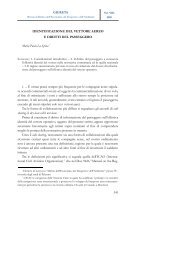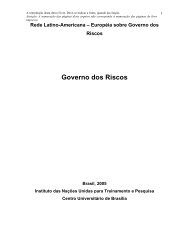Rome II and Tort Conflicts: A Missed Opportunity Abstract Contents
Rome II and Tort Conflicts: A Missed Opportunity Abstract Contents
Rome II and Tort Conflicts: A Missed Opportunity Abstract Contents
Create successful ePaper yourself
Turn your PDF publications into a flip-book with our unique Google optimized e-Paper software.
SYMEON C. SYMEONIDES ROME <strong>II</strong> AND TORT CONFLICTS<br />
During Parliament’s first reading of <strong>Rome</strong> <strong>II</strong>, the rapporteur proposed, <strong>and</strong><br />
Parliament approved, the insertion of the following exception to the general lex loci<br />
rule of what later became Article 4:<br />
In the case of personal injuries arising out of traffic accidents, . . . the<br />
court seised . . . should, for the purposes of determining the type of<br />
claim for damages <strong>and</strong> calculating the quantum of the claim, apply the<br />
rules of the individual victim’s place of habitual residence unless it<br />
would be inequitable to the victim to do so. 143<br />
The Council <strong>and</strong> Commission rejected this amendment, <strong>and</strong> the resulting<br />
compromise was the insertion of the following statement in recital 33 of the final text<br />
of the Preamble:<br />
According to the current national rules on compensation awarded to<br />
victims of road traffic accidents, when quantifying damages for<br />
personal injury in cases in which the accident takes place in a State<br />
other than that of the habitual residence of the victim, the court seised<br />
should take into account all the relevant actual circumstances of the<br />
specific victim, including in particular the actual losses <strong>and</strong> costs of<br />
after-care <strong>and</strong> medical attention. 144<br />
Obviously, this recital narrows down considerably the scope <strong>and</strong> import of<br />
Parliament’s amendment. Besides the fact that a recital does not have the same status<br />
<strong>and</strong> cogency as a rule in the main body of the Regulation, the recital does not<br />
authorize the application of the law of the victim’s habitual residence. It merely<br />
authorizes “taking into account” that law in “quantifying” damages, rather than in also<br />
“determining the type of claim for damages,” as Parliament intended. Thus, the recital<br />
appears to be no more than an invitation (à la Article 17) for the court to take account<br />
145<br />
of facts, such as the cost of medical care in the victim’s residence, in fixing the final<br />
amount of recoverable compensation. Nevertheless, unless one assumes that the<br />
Parliament got nothing in return for this “compromise,” the recital must mean<br />
143. EUR. PARL. FINAL A6-0211/2005 (June 27, 2005). The accompanying justification stated that<br />
in traffic accident cases, “applying the law of the state of the victim's place of habitual residence<br />
is more equitable (for the victim, e.g., where he or she needs lifelong care) <strong>and</strong> more practicable<br />
for insurers <strong>and</strong> the courts,” <strong>and</strong> that “not only the level of compensation is important, i.e., the<br />
question of how much; rather, what FORM of compensation to be received by an injured party<br />
is also important (in particular whether there is an entitlement to damages for pain <strong>and</strong> suffering,<br />
a nursing <strong>and</strong> attendance allowance or certain pensions). Accordingly, the type of compensation<br />
should be governed by the law applicable at the injured party's place of habitual residence.” Id.<br />
20/46.<br />
144. ROME <strong>II</strong>, recital 33. In addition, the Commission issued a Statement, reproduced as an appendix<br />
to the final text of <strong>Rome</strong> <strong>II</strong>, promising to study the matter <strong>and</strong> report to Parliament before the<br />
end of 2008.<br />
145. But see supra text accompanying notes 51-52.<br />
56 AMERICAN JOURNAL OF COMPARATIVE LAW (2008) PAGE 33 OF 46



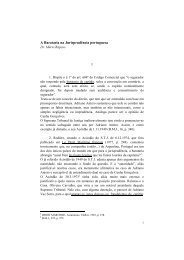
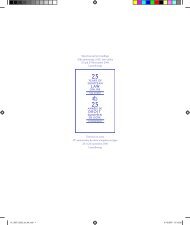
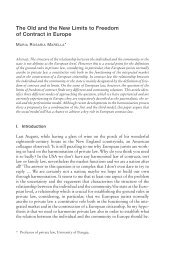

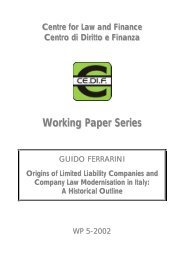
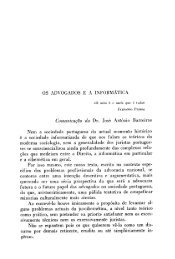
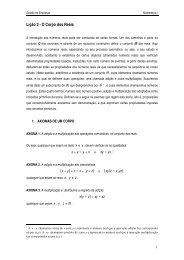
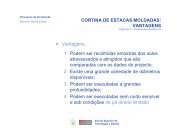
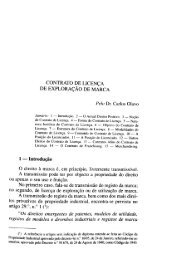
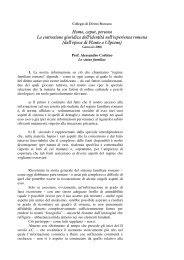
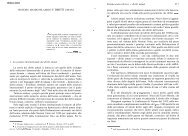

![Luigi Sapio Nozione di islām La parola “islām” [ ] è il mas.dar1 ...](https://img.yumpu.com/15836073/1/185x260/luigi-sapio-nozione-di-islam-la-parola-islam-e-il-masdar1-.jpg?quality=85)
